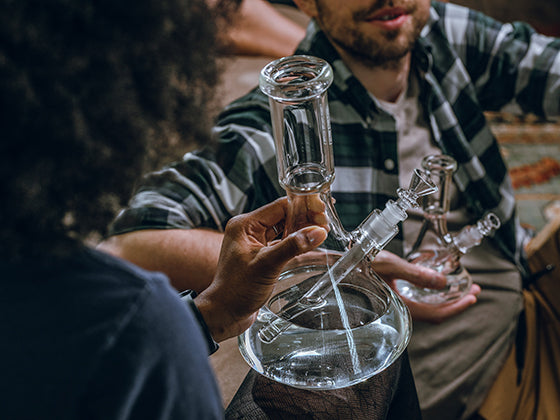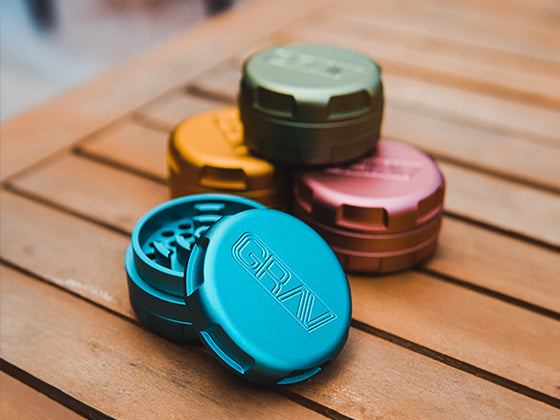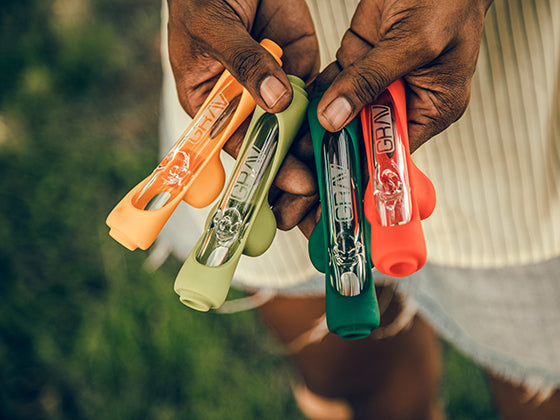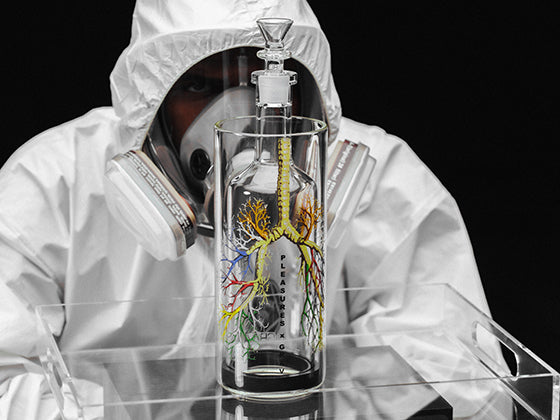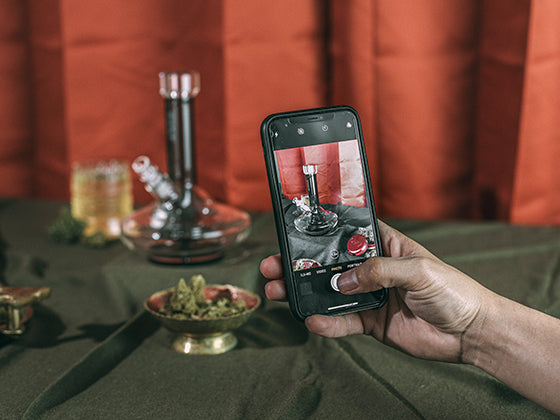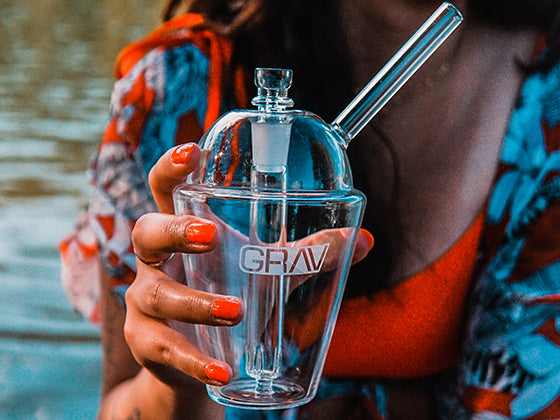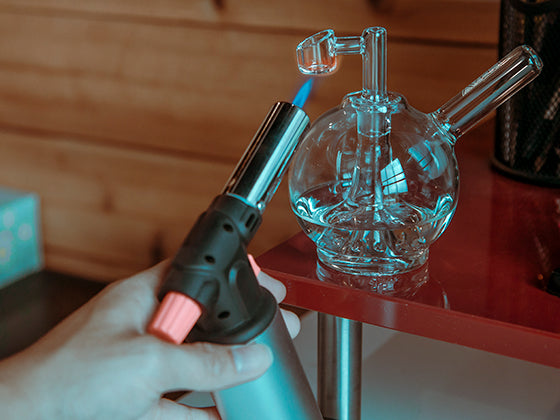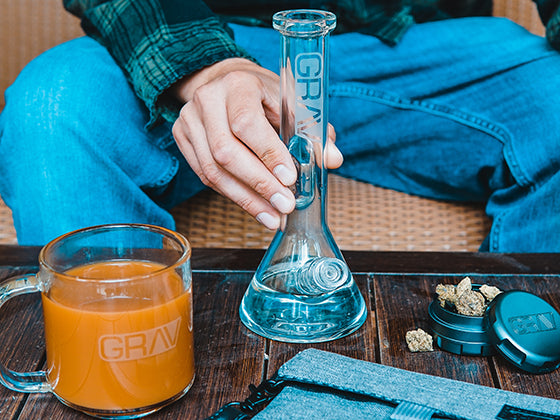Do this right now.
Unclench your jaw. Relax your shoulders. Take a deep breath.
Better? Good.
November 3rd is National Stress Awareness Day, a chance to highlight our day-to-day stressors and work on our coping mechanisms. Around here, our number one coping mechanism comes in the form of a pungent little flower. But what does the science say about the relationship between stress, anxiety, and cannabis?
We’re exploring the causes of stress in these crazy times, and how cannabis may be able to help.
Why Are We So Stressed Out?
Some of our stressors are personal. Work, family, finances. But others are systemic or cultural, making them much harder to control.
According to the American Psychological Association’s 2020 Stress in America™ survey, 77% of Americans agreed that the future of the country is a significant source of stress. That’s up 11 percentage points from the previous year. Access to health care is another major source of stress, cited by 66% of respondents. Mass shootings (62%) and climate change (55%) are also significant factors.1
It doesn’t get much better in our personal lives. 57% of American and Canadian workers report feeling stressed on a daily basis. That’s up 8 percentage points from 2019. The global average for daily stress? 43%.2
Oh yeah, and there’s that pesky little pandemic that we’ve all been living through since March 2020. Suffice it to say, our stressors don’t seem to be decreasing with time. They’re increasing. And we’re all struggling to deal with them.
What Does the Science Say About Cannabis and Stress?
Most regular cannabis users will tell you that it helps them to relieve stress and anxiety. We’ve all come home from a hard day at work, ready to pack a bowl and let the smoke carry our worries away.
But does it actually work? Or do we just think it does?
A Washington State University study asked medical marijuana users to self-report their stress and anxiety levels after smoking cannabis in their homes.3 The research showed that one puff of a high-CBD, low-THC strain was best for reducing symptoms of depression. Two puffs of any cannabis led to marked improvements in reported anxiety. And 10 or more puffs of a high-CBD, high-THC cannabis resulted in the biggest reduction of stress.
Another study by researchers at the University of Chicago and the University of Illinois at Chicago saw stress reduction with cannabis use, but only with low doses of THC.4 The subjects who received a higher dose found that the tasks they were asked to perform were more challenging and reported a greater “negative mood.”
Interestingly, these subjects received an isolated THC pill, rather than smoking cannabis. Could the combination of CBD and THC be the key to reduced stress from cannabis? Or does the method of absorption—smoking vs. ingestion—have an impact on stress relief?
Yet another study published in the Journal of Cannabis Research indicates that the use of mid- to high-THC cannabis leads to consistent stress relief.5 Participants reported a decrease in their stress and anxiety symptoms in 95.51% of user sessions.
In this study, CBD levels and inhalation method (joint, vape, or pipe) were not good predictors of relief. This study also acknowledges that some smaller studies that use isolated or synthetic THC have found a resulting increase in anxiety. The authors suggest that the true impacts of THC “likely encompass multiple brain regions and complex interactions with other chemotypic characteristics of the plant and endogenous neurotransmitters.”
In other words: more research is needed on the entire plant and its effects on mood, stress, and anxiety, rather than isolating THC.
Is Indica or Sativa Better For Stress?
For those who do find cannabis to be a helpful stress aid, what should they look for in their flower?
According to the Journal of Cannabis Research study, users reported that Sativa strains were less helpful with stress relief. This seems logical, as Sativas are usually considered more energizing and Indicas more relaxing.
But increasingly, cannabis experts are moving away from the Sativa and Indica classifications. On a molecular level, there’s no difference between the two strains. The growth environment—soil quality, temperature, water level, elevation—is a much more important determinant of how a plant will perform. But since buyers often get a strain name rather than a place of origin, it can be hard to predict effects with any certainty.
Instead of focusing on Indica vs. Sativa, look for a strain high in limonene, which has been shown to have an anti-stress effect.6 Some cannabis brands disclose their terpene profiles on their packaging, which can help you find a limonene-high strain.
Some Other Ways to Combat Stress
With the research on cannabis and stress positive but still inconclusive, it’s probably best to use cannabis as just one part of a stress-busting routine. Here are some other habits to practice to reduce the stress hormone cortisol and release the happy hormones dopamine and serotonin.
Exercise
You know it already. Breaking a sweat on the reg is one of the best, healthiest ways to reduce stress. It doesn’t matter what you do as long as you do it regularly. That means at least 2.5 hours of moderate aerobic activity or an hour and 15 minutes of vigorous aerobic activity per week.7 That’s only 10 to 20 minutes a day. You can do that.
Guided Meditation
If there’s one thing we suck at as a group, it’s sitting still and doing nothing. But a few minutes of focused calm can do wonders for stress levels. Try an app like Headspace, Calm, or Insight Timer to access guided meditations that can help you to soothe your wind-up toy brain.
Say No
Stress can be self-inflicted. When you say yes to too many things—assignments at work, get-togethers with friends, favors for neighbors—you can add unnecessary anxiety and overwhelm to your life. It’s okay to say no to protect your own mental health.
Practice Gratitude
It sounds like something an Instagram influencer would say, but it’s backed up by science. A number of studies show links between gratitude and stress relief, overall happiness, and self-improvement.8 Writing down a single thing you’re grateful for each day can help you to focus on all the good in your life, instead of dwelling on what’s going wrong.
1 https://www.apa.org/news/press/releases/stress/2020/report-october
2 https://www.cnbc.com/2021/06/15/gallup-us-workers-are-among-the-most-stressed-in-the-world.html
3 https://www.sciencedaily.com/releases/2018/04/180419100110.htm
4 https://today.uic.edu/low-dose-thc-can-relieve-stress-more-does-just-the-opposite
5 https://jcannabisresearch.biomedcentral.com/articles/10.1186/s42238-020-00051-z
6 https://pubmed.ncbi.nlm.nih.gov/16780969/
7 https://www.mayoclinic.org/healthy-lifestyle/stress-management/in-depth/exercise-and-stress/art-20044469
8 https://ggsc.berkeley.edu/images/uploads/GGSC-JTF_White_Paper-Gratitude-FINAL.pdf

